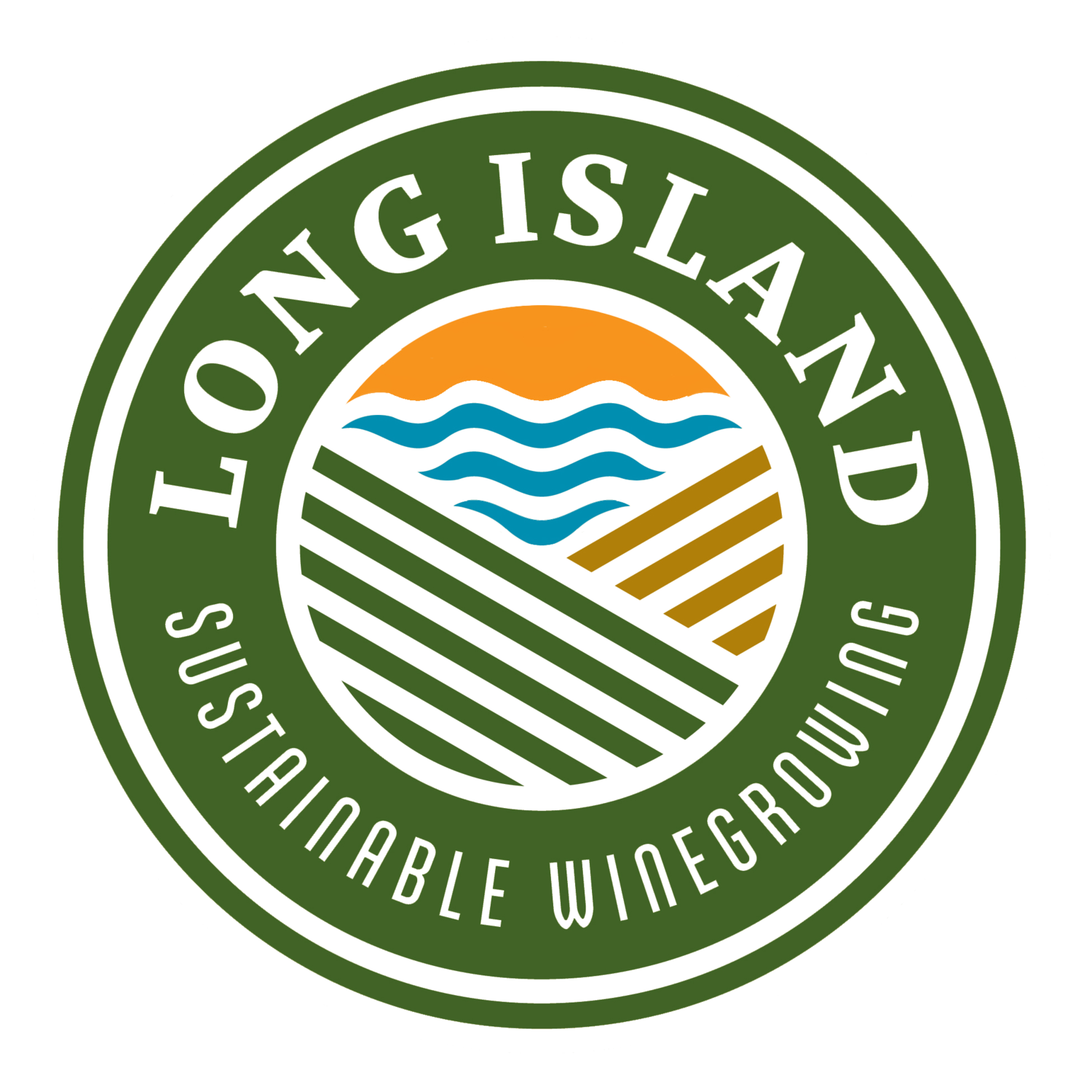The Long Island Sustainable Winegrowing Movers & Makers Interview Series is a celebration of the individuals behind the sustainable wine movement on Long Island. These winemakers and grape growers are on the forefront of reducing environmental impact while investing in the future of Long Island wine. Each featured vineyard is LISW Certified, and each Sustainability Leader has a unique strategy for continuous improvement beyond certification. The fruits of their labor include reduced carbon emissions, healthy soil, delicious wine, and so much more!
Interview with Alice Wise, Cornell Cooperative Extension of Suffolk County
Alice is a Grape Specialist for Cornell Cooperative Extension of Suffolk County. Her 2.5-acre research vineyard is located at the Cornell University Long Island Horticultural Research and Extension Center. Wise has worked for Cornell Cooperative Extension of Suffolk County for 33 years in applied grape research and education with a focus on variety evaluation and production practices that promote environmental responsibility. Since the first vines were planted in 1993, 49 winegrape varieties have been evaluated in the research vineyard. The trial initially focused on the three most commercially important varieties, Chardonnay, Merlot and Cabernet Sauvignon. Other white and red varieties have been planted to help define which varieties thrive in Long Island's maritime climate and sandy soils. Varieties from this trial that are now planted in the industry include the Dijon Chardonnays, Dornfelder, Muscat Ottonel, Lemberger, Malvasia Bianca, Albariño and Barbera. With input from the advisory group and industry, renovation of selections in the vineyard continues, reflecting the stylistic evolution of Long Island wine.
LISW: What inspired you to be a part of the sustainable wine movement on Long Island?
AW: My involvement in sustainability grew as I worked on sustainable viticulture guidelines. I am a co-author of the Long Island Sustainable Viticulture guidelines (2005), the statewide workbook (VineBalance, 2007) and the Long Island Sustainable Winegrowing program (2012). The LISW program builds on the first two and is by far the most comprehensive set of guidelines. A lot of credit goes to the Long Island growers who were motivated to create LISW – Rich Olsen-Harbich, Bedell Cellars; Larry Perrine, Channing Daughters; Jim Thompson, RGNY and former owner of Shinn Estate, Barbara Shinn. Working with them on LISW was a tremendous learning experience.
LISW: What sustainability practices do you apply in your vineyard/winery?
AW: Sustainability is definitely reflected in the research projects that we do. Growers encourage this kind of research and often contribute funding. This season we evaluated a berry cuticle enhancing product. By ‘toughening up’ the cuticle, we hope this makes the berries more resistant to late season cluster rots. Every year we evaluate organic and low impact pesticides. For various reasons, they are often tricky to use, and they are expensive. Knowing whether they work or not, and if they do work how best to incorporate them, is important to growers. We’ve also invested a section of the Cornell vineyard into disease resistant hybrid grape varieties. We screen them for degree of disease resistance and evaluate fruit quantity and quality. Disease resistance doesn’t matter if the variety does not produce economically viable yields of high-quality fruit. On a vineyard management level, I follow the LISW guidelines, I use a lot of organic products and fertilizers, and I mow the weeds under vines. This season, I also informally evaluated an organic herbicide to help knock back the weeds.
LISW: What are some of the benefits you see from sustainable winegrowing?
AW: Honestly, I think one of the biggest benefits has been the interaction among growers that the sustainability program has fostered. There is a lot of discussion now about which practices are best suited to our sandy soils and maritime climate. There is a lot more experimentation by growers as well. I think most of us feel good that we are constantly assessing what we do so that we can do a better job in the future. Long Island is an environmentally sensitive region, so the future of the industry lies in our ability to continue to be good stewards of the land. On the larger stage, our sustainable program has put us in contact with some of the great viticultural minds in the country. We have interacted extensively with sustainable viticulture programs on the west coast. Every single program has been generous with their time and information.
LISW: What sustainability trends or technologies are you excited for in the future of Long Island wine?
AW: I think the industry should take a good hard look at hybrid grape varieties. With the changing and sometimes challenging climate, we need varieties that are resilient and that reduce economic risk. Hybrids ripen a lot earlier than vinifera varieties – that fact alone reduces risk. More and more growers are now cultivating under vines to reduce weed competition for water and nutrients. I think that trend will continue, though cultivation is an expensive practice both due to the equipment and the high labor demand. In the future, I’m sure digital/high tech agricultural techniques will be implemented in ways to help with environmental awareness and responsibility.
To learn more about Alice Wise and the Cornell Cooperative Extension of Suffolk County visit: http://ccesuffolk.org/agriculture/grape-program



